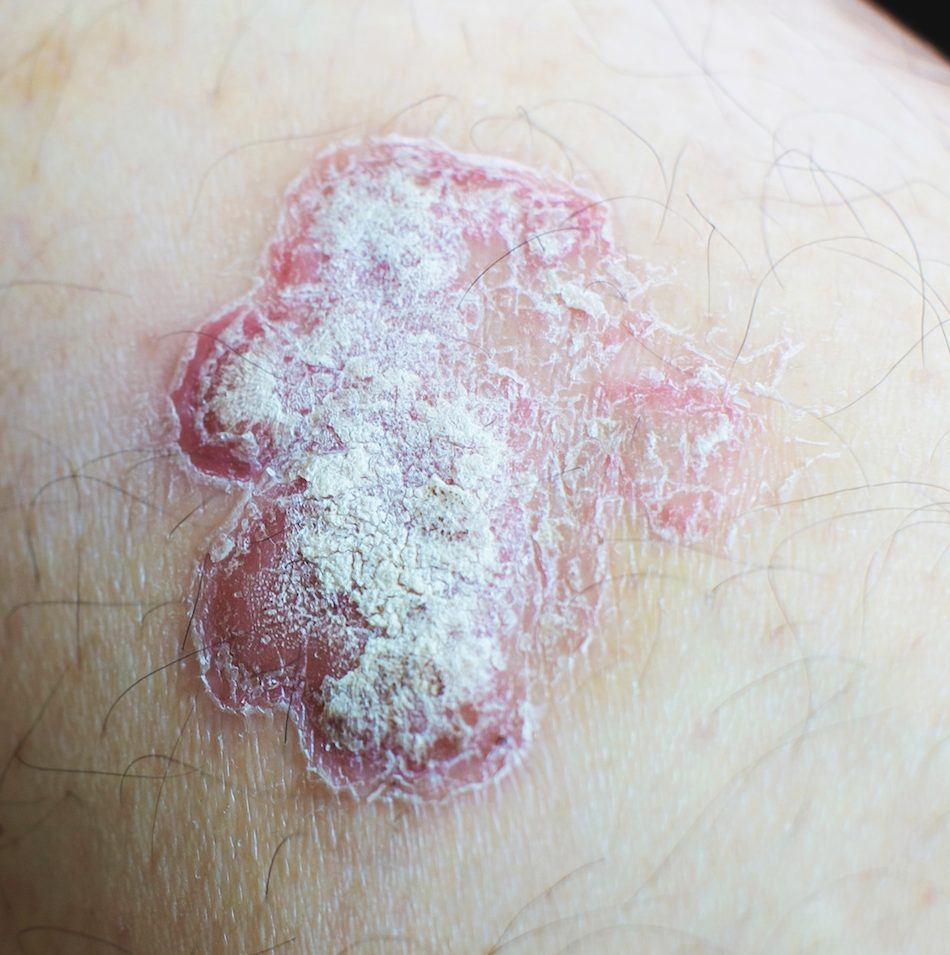 Psoriasis is a chronic inflammatory disease affecting 7.5 million people in the United States. “It’s classified as an autoimmune disorder, meaning the bodies own immune system is creating an inflammatory response to itself,” says Dr. Kellie Reed, board certified Dermatologist at Sanova Dermatology. The severity of the condition can vary and affect activities of daily living even in mild forms. Multiple treatment options are available ranging from topical preparations to injectable therapies. Now, a new treatment option called Siliq was recently approved by the FDA.
Psoriasis is a chronic inflammatory disease affecting 7.5 million people in the United States. “It’s classified as an autoimmune disorder, meaning the bodies own immune system is creating an inflammatory response to itself,” says Dr. Kellie Reed, board certified Dermatologist at Sanova Dermatology. The severity of the condition can vary and affect activities of daily living even in mild forms. Multiple treatment options are available ranging from topical preparations to injectable therapies. Now, a new treatment option called Siliq was recently approved by the FDA.
What Is Siliq?
Siliq, also know as brodalumab, is a human monoclonal antibody. Antibodies are proteins used by the immune system to bind to or tag harmful agents. Brodalumab binds to a receptor and prevents its interaction with a particular group of proteins thought to cause inflammation. “By doing this brodalumab prevents the inflammatory response seen in plaque psoriasis,” explains Dr. Reed. Clinical trials have demonstrated Siliq to be a highly effective treatment. During three trials multiple endpoints or outcomes were examined. One outcome demonstrated that over 75% of individuals involved noted clear or almost clear skin based on a Physician’s Global Assessment score which takes into account the plaque thickness, redness and scaling.
Is Siliq Right For Me?
A good candidate for therapy with Siliq are adults suffering moderate to severe plaque psoriasis who are candidates for systemic therapy or phototherapy but failed to respond or stopped responding to other therapies. Siliq is an injectable medication, dispensed in pre-filled syringes and is administered once weekly for 2 weeks then once every 2 weeks for 12-16 weeks.
Are There Any Side Effects?
The most common side effects associated with this therapy according to the FDA are joint, throat and muscle pain, headache, fatigue, diarrhea, nausea and low white blood counts. Injection site reactions were also reported. Because this medication targets the immune system, individuals are at increased risk for infections such as influenza and fungal infections. Patients should also be screened for active tuberculosis infection prior to starting therapy. Suicidal ideation and behavior were also noted during clinical trials. Those with a history of depression were at higher risk. “Individuals taking this therapy should be aware of the risks and seek help by medical professions if they develop new or worsening symptoms while on the medication,” cautions Dr. Reed.
Contact Us
Psoriasis is a chronic illness which can affect your daily activities. Though there is no cure for this disease many treatment options are available to manage the symptoms. If you suffer from psoriasis contact us and let our providers help see if Siliq many be a option for you.
